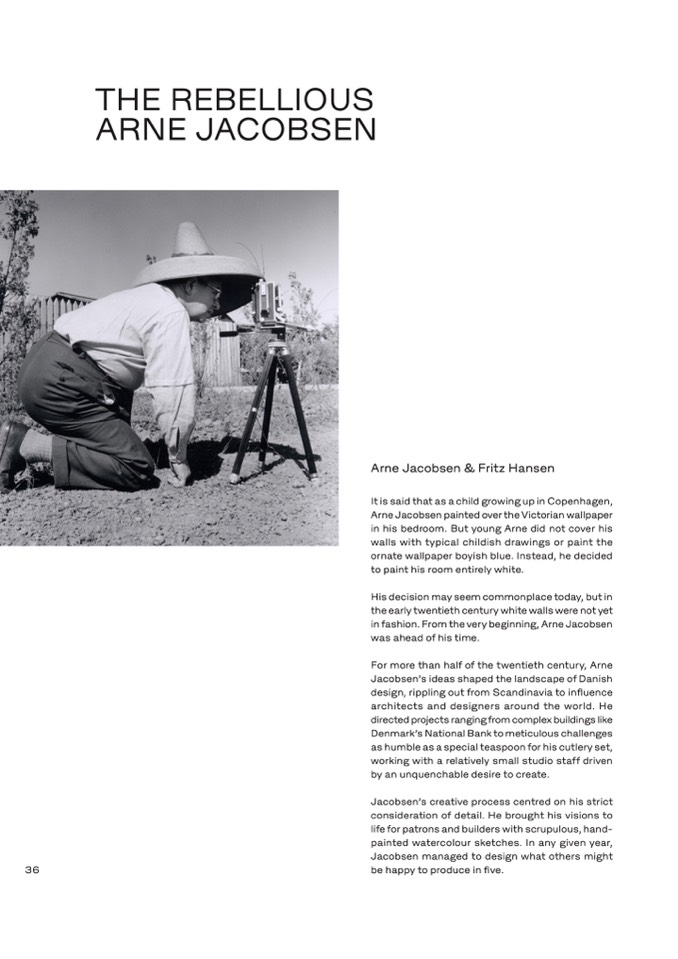
THE REBELLIOUS
ARNE JACOBSEN
36
be happy to produce in five.
Arne Jacobsen & Fritz Hansen
It is said that as a child growing up in Copenhagen,
Arne Jacobsen painted over the Victorian wallpaper
in his bedroom. But young Arne did not cover his
walls with typical childish drawings or paint the
ornate wallpaper boyish blue. Instead, he decided
to paint his room entirely white.
His decision may seem commonplace today, but in
the early twentieth century white walls were not yet
in fashion. From the very beginning, Arne Jacobsen
was ahead of his time.
For more than half of the twentieth century, Arne
Jacobsen’s ideas shaped the landscape of Danish
design, rippling out from Scandinavia to influence
architects and designers around the world. He
directed projects ranging from complex buildings like
Denmark’s National Bank to meticulous challenges
as humble as a special teaspoon for his cutlery set,
working with a relatively small studio staff driven
by an unquenchable desire to create.
Jacobsen’s creative process centred on his strict
consideration of detail. He brought his visions to
life for patrons and builders with scrupulous, hand-
painted watercolour sketches. In any given year,
Jacobsen managed to design what others might

